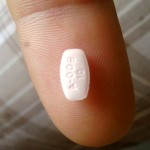
Late-onset schizophrenia is relatively common. Onset after the age of 40 years is reported in 23% of patients hospitalised with schizophrenia. The condition is different from early-onset schizophrenia on a number of counts, including the response to antipsychotic drugs. This Cochrane review set out to assess the effects of antipsychotic drugs for elderly people with [read the full story…]







